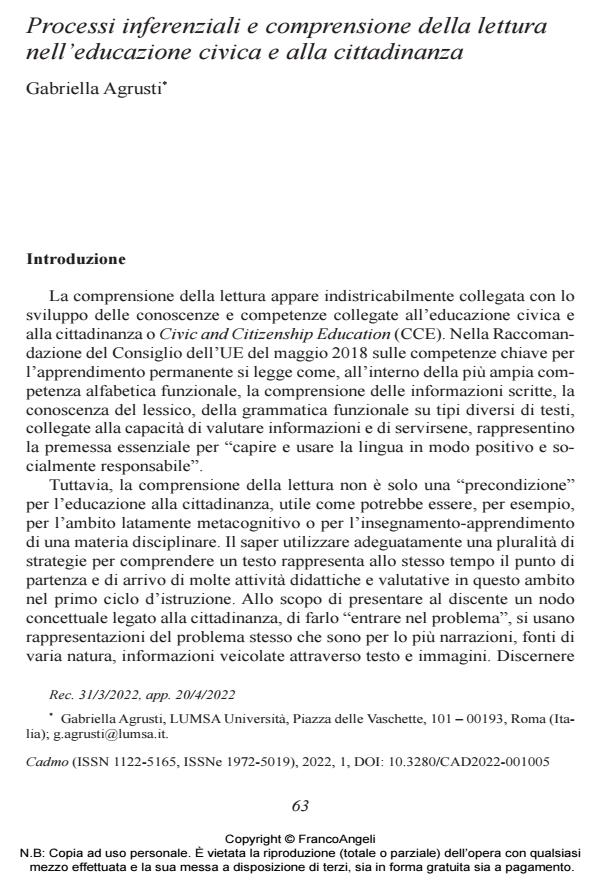Inferential processes and reading comprehension in civic and citizenship education
Journal title CADMO
Author/s Gabriella Agrusti
Publishing Year 2022 Issue 2022/1
Language Italian Pages 19 P. 63-81 File size 236 KB
DOI 10.3280/CAD2022-001005
DOI is like a bar code for intellectual property: to have more infomation
click here
Below, you can see the article first page
If you want to buy this article in PDF format, you can do it, following the instructions to buy download credits

FrancoAngeli is member of Publishers International Linking Association, Inc (PILA), a not-for-profit association which run the CrossRef service enabling links to and from online scholarly content.
Reading comprehension is not only a prerequisite for civic and citizen- ship education, useful as it might be, for example, for the metacognitive domain or for teaching-learning a disciplinary subject. Knowing how to adequately use a plurality of strategies to understand a text represents both the starting and ending point of many teaching and assessment strategies in CCE. Starting with an analysis of the framework of the IEA-ICCS 2016, the article aims to consider whether and to what extent skills related to reading comprehension are involved in the resolution of the tests used to measure the different domains assessed in the study. Specifically, the inferential pathways that respondents may have put in place in solving the tests, will be analysed. The pedagogical and evaluative implications that follow from this analysis are then presented.
Keywords: civic and citizenship education, reading comprehension, infer- ence, IEA ICCS 2016, teaching strategy.
Gabriella Agrusti, Processi inferenziali e comprensione della lettura nell’educazione civica e alla cittadinanza in "CADMO" 1/2022, pp 63-81, DOI: 10.3280/CAD2022-001005